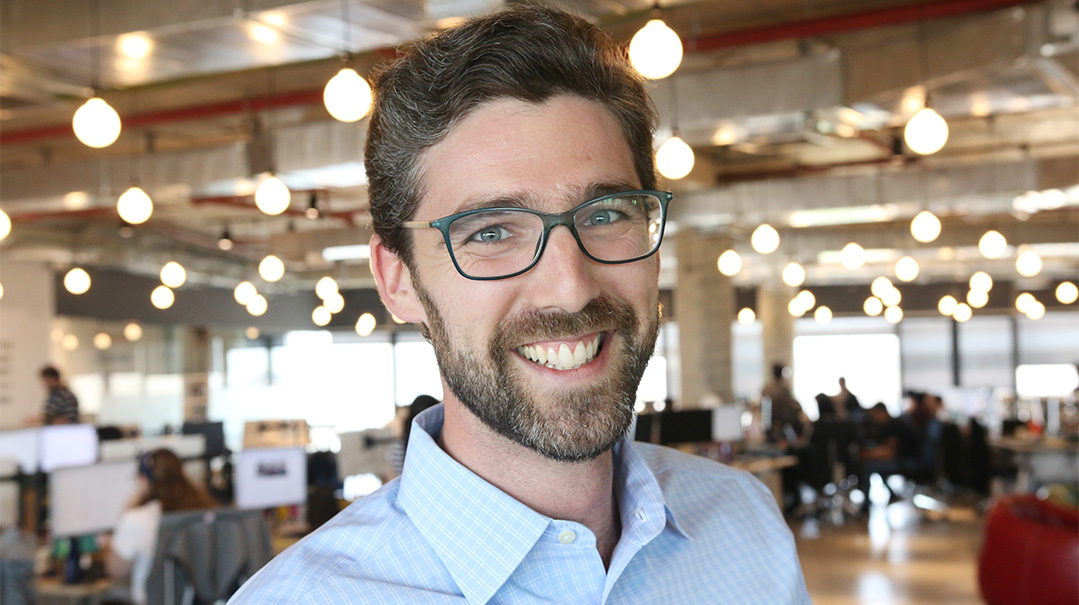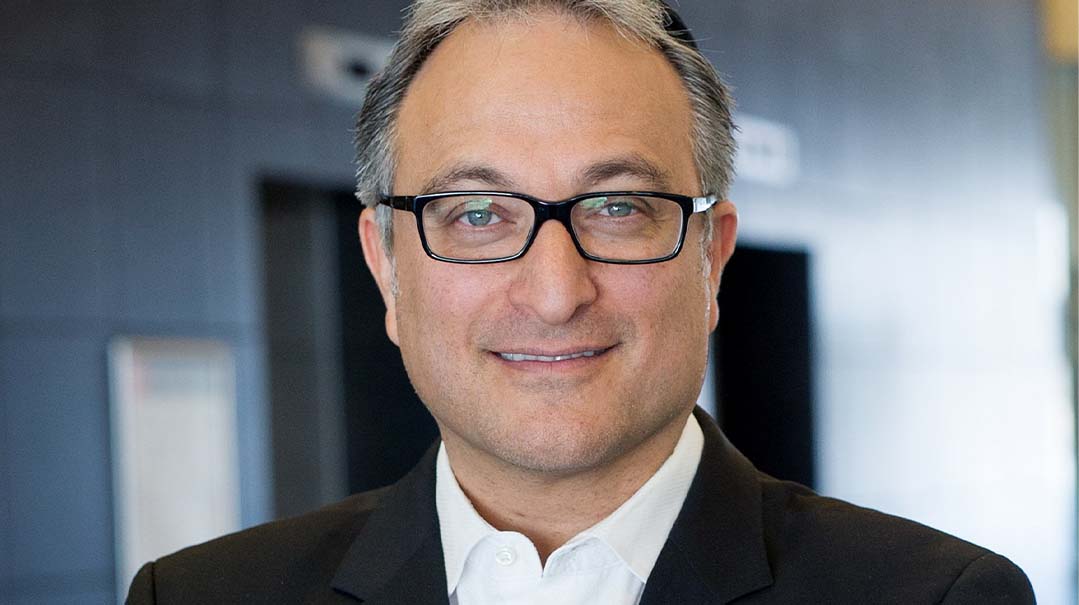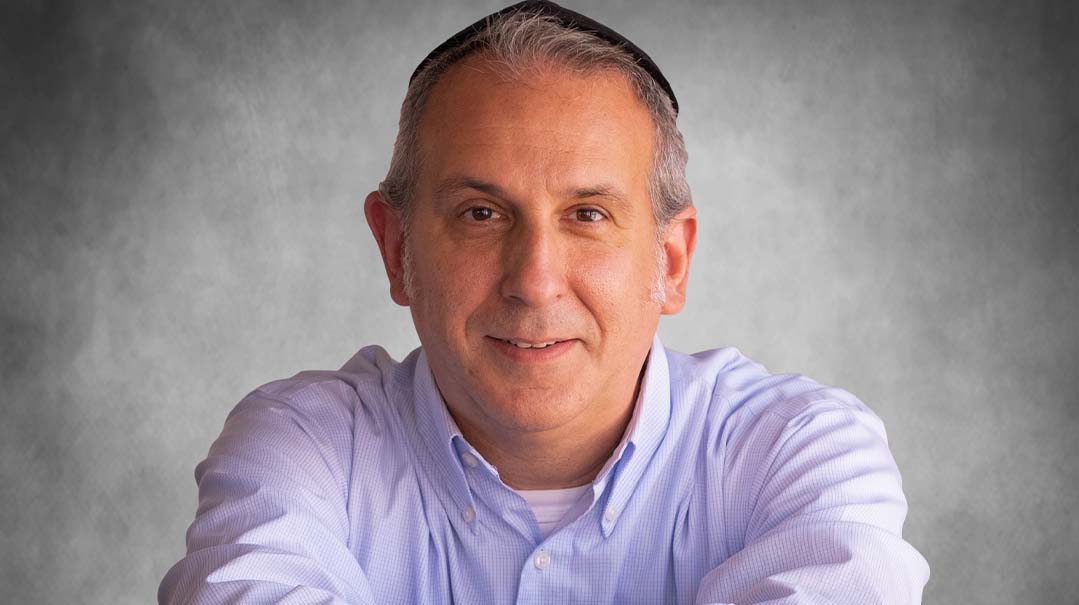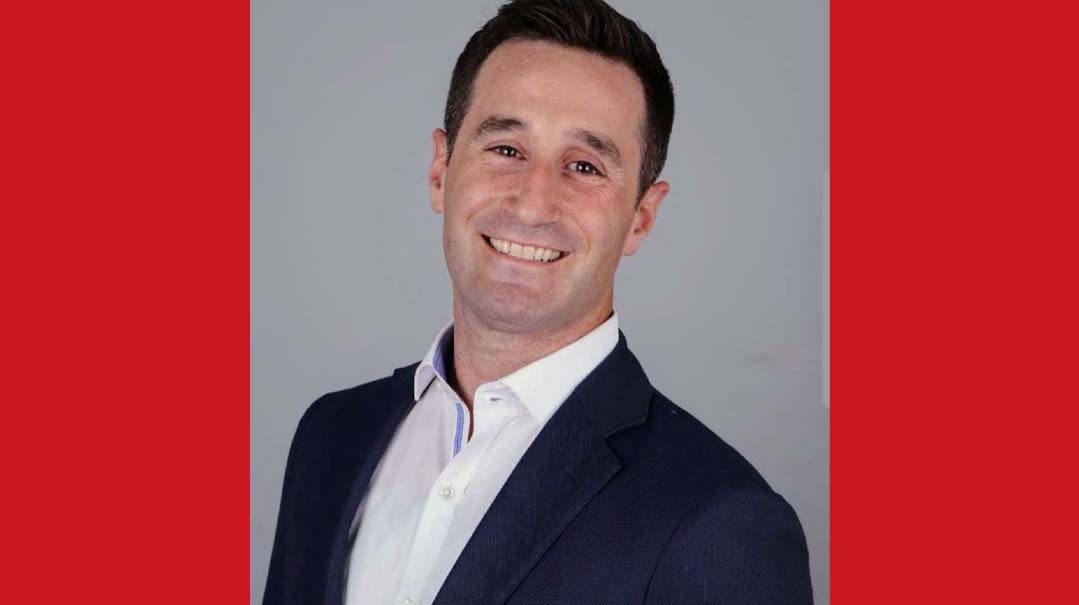Work/Life Solutions with Boruch Dvinsky

"You have to be honest about who you are, what you need/want in your life, and what your motivations are"
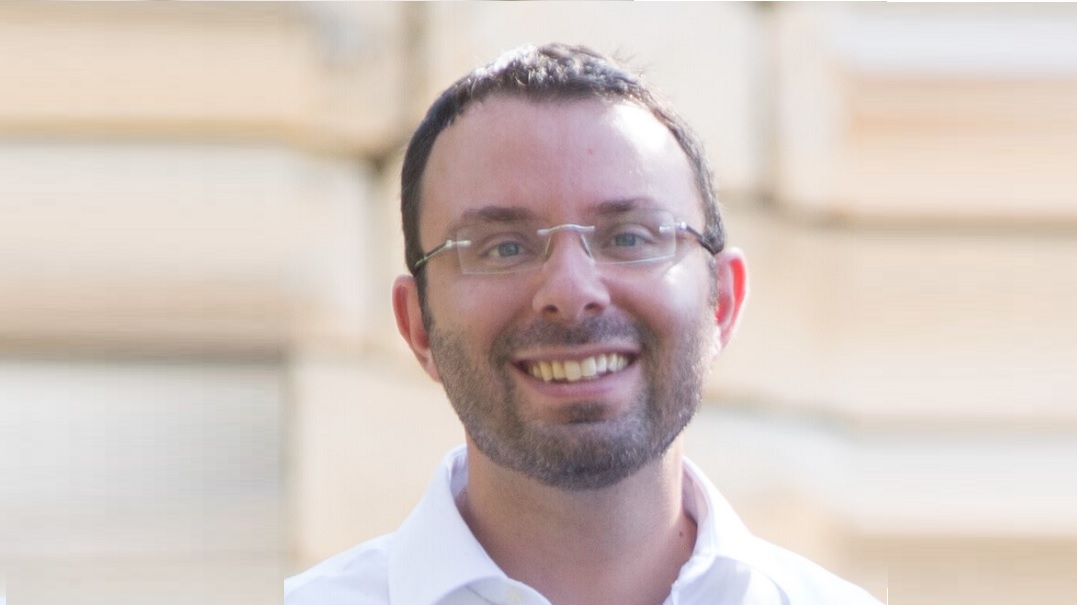
Who: Boruch Dvinsky, founder & CEO at Elaris Technologies and Managing Partner at Concentus Partners
What: An experienced executive in the financial technology and quantitative hedge fund industries, Boruch now runs two hedge funds to manage his clients’ money and oversees Israel-based Elaris Technologies, an R&D employer of the technical team that creates the algorithms and manages all the hedge funds’ technology.
Where: Born in Houston, Texas, Boruch’s family moved to Hanover, New Hampshire, when he was just one year old. As a high school student, he took math, computer science, and engineering courses at the local Dartmouth College, and then went on to get a BS in math and computer science at Rensselaer Polytechnic Institute and a master’s in financial mathematics from the University of Chicago. In 2007 he moved to New York to begin his career on Wall Street, but soon after found himself on the way to Jerusalem to learn in yeshivah. He now lives in Ramat Beit Shemesh with his wife and four children.
Why: Boruch inspires me in so many ways. First, his genuine humility (you can be friends with him for years without knowing his impressive bio), diligence in Torah learning (daily Gemara and halachah sedorim), and constant simchas hachayim (he’s always smiling) are things that I’ve admired for the years I’ve known him. Second is his personal story: succeeding on Wall Street, and then seeing the blessing of being fired from his job during the financial crisis, as it actually launched his growth in Torah. And third, he just spearheaded an investment vehicle to help Jewish businesses get through coronavirus. So now we can all be inspired!
1 of 9 What opportunities or personalities played a role in your career?
I grew up in an observant home in Hanover, New Hampshire, but went to a public school — no yeshivos out there. We were the only observant family within a 100-km radius. My baal teshuvah parents were refuseniks in the former Soviet Union before arriving in the US in 1979. We kept kosher, Shabbos, and had a strong Jewish identity, but no formal Jewish education. At the time I don’t think I really appreciated the uniqueness of the situation. I became progressively more observant over time, as I encountered more frum influences in summer camp and university. Looking back, it is quite miraculous that I ended up the way I did, and I have to give enormous credit and thanks to my parents for how they raised me.
Growing up, the only rabbi we were really connected with was Rabbi Levi Krinsky (son of Rabbi Yehuda Krinsky, the Lubavitcher Rebbe’s secretary and right-hand man), who was based in Manchester, NH. As I sought to deepen my connection to Yiddishkeit, I became a ben bayis at the homes of the campus shluchim during my undergraduate and graduate years, I developed a huge appreciation for their openness, unlimited ahavas Yisrael, hachnassas orchim, and willingness to sacrifice their personal comfort for others. I owe them a tremendous debt for their warmth and dedication to helping me, which set me on my path to future growth.
After finishing graduate school in Chicago, I came to New York to begin my career, settling into an apartment on the Upper West Side, where I became close with many families who would host lots of people (mostly singles) for Shabbos meals. They tended to be wealthy, learned, modest, and extraordinarily generous. I was very inspired by them.
I was quite happy with my work arrangement. I was going to be a trader in the mortgage backed securities (MBS) group at HSBC, one of the biggest players in that space at the time, and I was sure that soon I would be in on the bonanza in a big way. But the timing couldn’t have been worse, as shortly after I began my training in 2007, the housing bubble, inflated by subprime loans and no-documentation mortgages, on which the colossal MBS industry had been built, began to pop, and as the housing prices fell, the demand for MBS evaporated. Holders of MBS made a mad dash to sell them as fast as possible, their value collapsed, and investors in MBS funds demanded collateral as they feared their investments were in danger of disappearing.
I saw the financial world around me crumble, and the firings began shortly thereafter, just a few months after I landed the job. Many of my fellow new trainees were let go, along with many other traders, salespeople, and even senior executives. I was fortunate to be moved to a different trading desk, the structured fund products group, and while it was less exciting than what I had initially envisioned, I was happy to still have a job. But during the next two years, the contagion spread from credit to equity markets, which proceeded to crater and ultimately lost close to 60 percent of their value by early 2009. I kept my head down and found a niche in my group, being moved up to managing a derivatives product book of my own. This was a nice opportunity to actually have major responsibility as the sole manager of a couple-hundred-million-dollar portfolio.
Meanwhile, I got married at the end of 2008, accepting a condition that my wife laid down: that we move to Israel. I had always loved Israel, having made several trips with family and on my own, but I hadn’t ever really considered living there. What I did want, though, was to spend some time learning in yeshivah, something I’d missed all these years. I had been to Aish HaTorah in Israel a few times, a week or two here and there, but I wanted to be able to learn at a much higher level. So we made a plan to go to Israel — we’d try it out for a year and see how it went. I would learn full-time at Ohr Somayach, while my wife would work at her former seminary, Michlelet Mevaseret Yerushalayim.
The only problem: What about my job? I began trying to negotiate a way out, hoping for the best case, which would be to get laid off and receive some kind of severance package, but my boss at the time, while a nice guy, had no reason to let me go with a golden parachute. It was June of 2009, and Bernie Madoff had been indicted for defrauding thousands of investors of billions of dollars in a massive Ponzi scheme. At the time I didn’t think we’d be directly affected, but we were now informed that years ago, our trading group had made very significant investments into Madoff funds for some of our high-end clients. These investments were now responsible for a billion-dollar loss, and it became apparent that heads would roll, and that for the second time in less than two years, I would be in the firing line — but this time, I realized I was actually being given a gift from Hashem — the severance package I’d been begging for.
I spent two years at Ohr Somayach in Jerusalem, an amazing environment that encouraged hasmadah and growth, and I’m forever grateful to the rabbanim there for how much they invested in me. At that point we decided to start making the transition from kollel life to working life, and so we moved to Ramat Beit Shemesh, where I began looking for work while continuing to learn two sedorim at a local beis medrash. I wasn’t sure what to expect in the Israeli job market though, but then seemingly out of nowhere, I was forwarded a job ad by Nefesh B’Nefesh, for a quantitative researcher at WorldQuant/Millennium Partners, one of the top hedge funds in the world. After a grueling five-month interview process, I finally landed the position, yet after a few years, I got the itch to return to managing money directly. So I started to dream of striking out on my own, building a hedge fund from scratch. I was fortunate to find eager investors who I partnered with, and we built a great team of super-talented people. But it’s a tough, brutally competitive business, and I’ve had to weather many ups and downs along the way.
Life in Ramat Beit Shemesh has been wonderful — there is a special breed of olim here who are very idealistic, dedicated to learning, to teaching, and to endless chesed, and they keep inspiring me to do more. I’ve found a lot of opportunities to help new olim acclimate and find work, and to help others who have fallen on hard times. And I’m incredibly thankful to my wife for having pushed us to build our life and raise our family in Israel. She has brought us tremendous blessing here in the land of the Jewish People.
5 of 9 If you were granted an extra three hours per day or a spare million dollars, what would you do with that time or money?
If I had an extra three hours a day, I would love to have another solid learning seder with a great chavrusa. The big question is, how can we get those extra three hours a day without waving a magic wand? And even if we do find some extra time here and there, it’s tough to be disciplined enough to snap out of whatever else you were doing and harness it. Doing serious learning when you’re so busy is nearly impossible, unless you make it a nonnegotiable part of your schedule. Locking in an early morning daf yomi shiur, nighttime halachah shiur, giving a weekly shiur in a chabura, and chavrusa commitments have been the keys for me to create a schedule where I feel like I’m accomplishing something.
7 of 9 If you were asked to deliver a TED Talk that would be watched by 50 million people, what topic would you choose to speak about? Why?
One of the things I love to speak about, because I have seen it so many times in my own life, is how we often experience a descent before an ascent. I think that almost every major positive change in my life was preceded by a painful experience.
Today, we’re facing unusual, sometimes excruciating circumstances: The coronavirus crisis has taken a terrible toll on human life, as well as a colossal economic price. We all know people who have been impacted, whether as employees who have been laid off, or as business owners who have seen their revenues collapse. But I’ve learned in my own career trajectory that it’s exactly in those hard, painful, and confusing times that Hashem guides us so closely to bring us to the place we were meant to be. For some that might mean a new job, making aliyah, taking time out to be with family, to rededicate ourselves to learning Torah, or all of the above. These are times when we need to reevaluate our lives and make the changes we have been waiting to make. It can truly be a gift in disguise.
A few weeks ago, I teamed up with a longtime friend, Benyamin Clayman, to try to find a way to do something proactive and positive to improve the situation. Benyamin made aliyah about five years ago to Kiryat Sefer, and has been involved in many successful venture capital seeding deals in the tech space. Our plan is to make significant cash investments into businesses to help get them through this difficult period and beyond, so that they can not only survive, but thrive. We are primarily looking for Jewish-owned businesses with a proven track record of success that have been adversely affected due to the economic shutdown. We are loosely targeting $500K to $1M investments in exchange for for an equity stake in the business. Be in touch: shalom@observantcap.com.
8 of 9 Can you share a time when you had to navigate the tension between your deepest values and the business world?
I’ve had some difficult but life-shaping experiences both as an employee and as a business owner. When I first began working as a trader, my boss was a workaholic, and would always give people a hard time if they tried to slip out early, or even at a normal time. One Xmas eve, as markets closed early and it was understood that people would be leaving much earlier than usual, the more senior traders started to trickle out one by one mid-afternoon. I, being a junior trader at the time and still concerned about cementing my image as a hard worker, and being Jewish, continued to hang out at my desk pretending to be busy. My boss also remained after everyone had left, leaving only me and him. This man had a wife and child at home, and I couldn’t understand — didn’t he want to go home to his family? He then proceeded to get me to do sudoku with him, apparently as some kind of premise to just find more things to do in order to remain in the office. When we finally left, I told myself that this would never be an acceptable work/family life balance for me.
As a business owner, the challenges were quite different. I could leave whenever I wanted, though I did feel some self-generated pressure to stay later in order to keep up a culture of hard work in the office. Over time I realized that this was exactly what I had hated at previous jobs, and I learned to be more easygoing about hours and face time.
I’m fortunate to have employees who work hard and are self-motivated, so my challenges today are different — often coming down to things that seem small and relatively harmless. In our work, this usually manifests itself in keeping to the fine print of software and data contracts. Can you use the free personal version for commercial purposes? If the license is meant to be for one user, is it okay to allow your whole team to use it? The rationalizations come easily: The software vendor is so huge, what do they need more money from us for? Initially there are moments where your conscience nags you, but then you just get busy with other things and try to forget about it. Last year, Rabbi Yaacov Haber, our shul rav, gave a derashah in which he recounted some of the amusing questions he gets on a daily basis from kehillah members. He said that most of the questions could be simply categorized as: “Is it okay to steal like this? How about like this?” He explained that the answer is: “No. No, you can’t steal.” Seems simple, right? And yet sometimes it’s so hard. I got a lot of chizuk from this.
9 of 9 If you were advising a young man/woman hoping to launch a career as an entrepreneur, which “do’s” and “don’ts” would you share?
The first thing I would ask is, why do you want to be an entrepreneur? I believe some people are just not cut out for it, while others simply couldn’t have it any other way. You have to be honest about who you are, what you need/want in your life, and what your motivations are. Sometimes we find ourselves stuck in a groove for years, and we aren’t even sure how we got into it, not to mention how to get out. A person can get used to a job where he comes home every night at 9 p.m. and is never able to have dinner with his family, or even put his children to sleep. This can become “normal” — but do we really want it to be?
So for those who are sure they want to be entrepreneurs: Be prepared for ups and downs. It can be pretty stressful when you feel like everything is riding on your shoulders. Remember to try to keep work at work. Practical tip: Every day, but especially after a difficult day, remember to take several deep breaths and clear your mind before you walk through your front door to come home to your family. They deserve to have you there, not your burdens.
(Originally featured in Mishpacha, Issue 812)
Oops! We could not locate your form.

